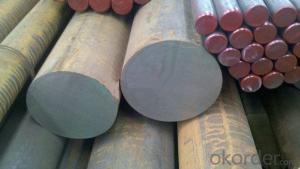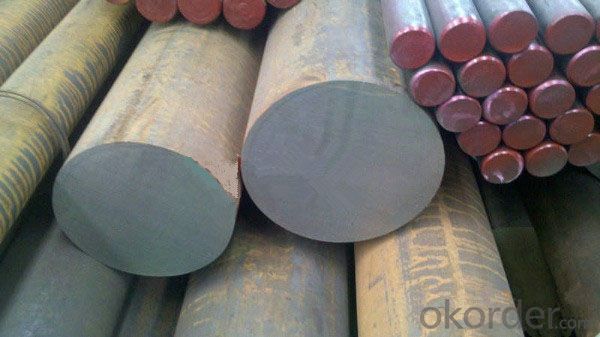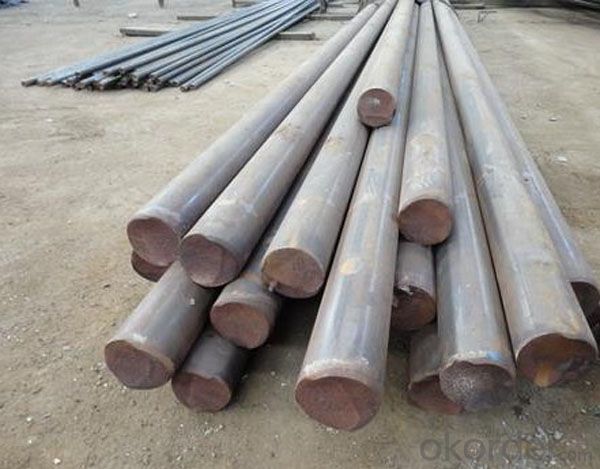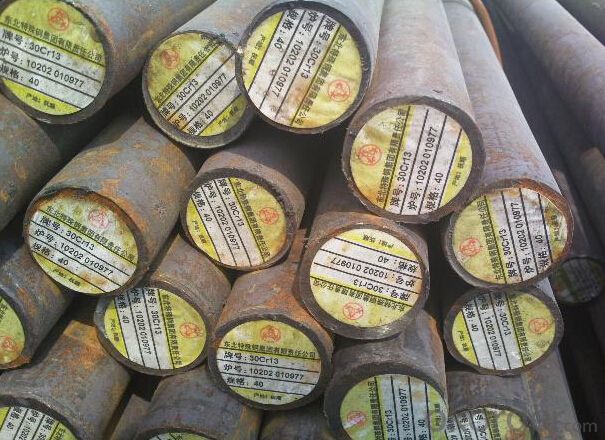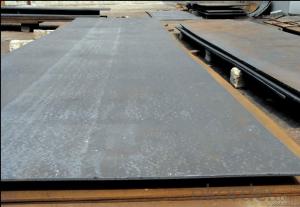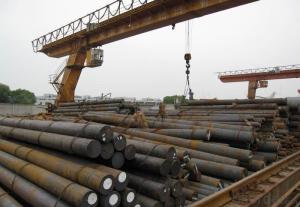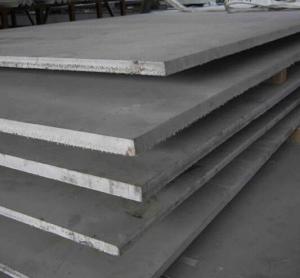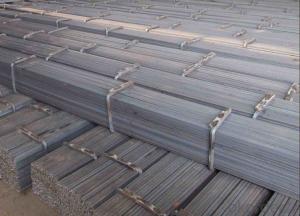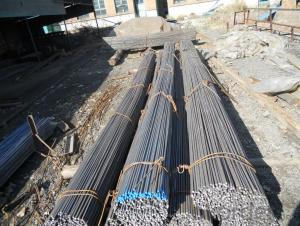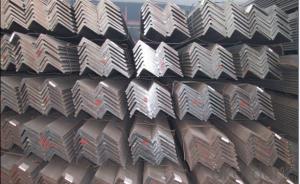Special Steel Forged Carbon Steel SS400 Q235
- Loading Port:
- China main port
- Payment Terms:
- TT OR LC
- Min Order Qty:
- 30 m.t.
- Supply Capability:
- 10000 m.t./month
OKorder Service Pledge
OKorder Financial Service
You Might Also Like
Specification
Product Information
1 Grade Comparison:
GB | ASTM | JIS | EN |
Q235 | Grade D | SS400 | S235JR(1.0038) /S235JO(1.0114) /S235J2(1.0117) |
2 Chemical Composition:
Q235A
C | Mn | Si | S | P |
0.14-0.22 | 0.30-0.65 | ≤0.30 | ≤0.050 | ≤0.045 |
Q235B
C | Mn | Si | S | P |
0.12-0.20 | 0.30-0.70 | ≤0.30 | ≤0.045 | ≤0.045 |
Q235C
C | Mn | Si | S | P |
≤0.18 | 0.35-0.80 | ≤0.30 | ≤0.035 | ≤0.035 |
Q235D
C | Mn | Si | S | P |
≤0.17 | 0.35-0.80 | ≤0.30 | ≤0.035 | ≤0.035 |
3 Brief Introduction:
Dimension | 13-350mm |
Length | 2-13m or as per your request |
Delivery condition | Hot rolled |
Heat Treatment | Normalizing, Annealing, Quenching |
Packing | Standard seaworthy packing or according to your requirements |
4 Mechanical Property:
Thickness/diameter(mm) | Tensile strength | Yield strength | Elongation rate |
≤16 |
375MPa-500MPa | ≥235MPa | ≥26% |
16-40 | ≥225MPa | ≥25% | |
40-60 | ≥215MPa | ≥24% | |
60-100 | ≥205MPa | ≥23% | |
100-150 | ≥195MPa | ≥22% | |
>150 | ≥185MPa | ≥21% |
Product Show
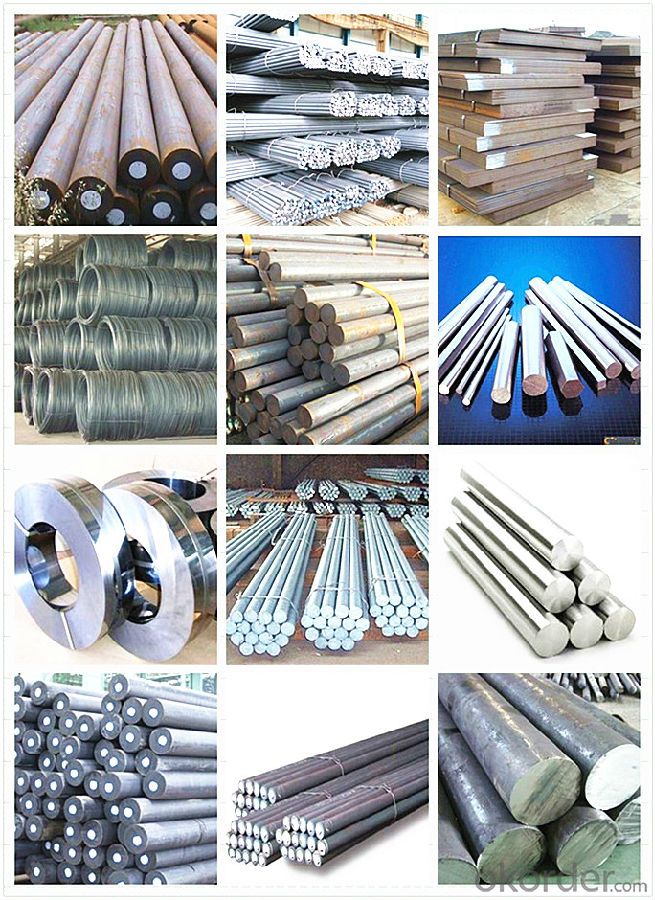
Workshop Show
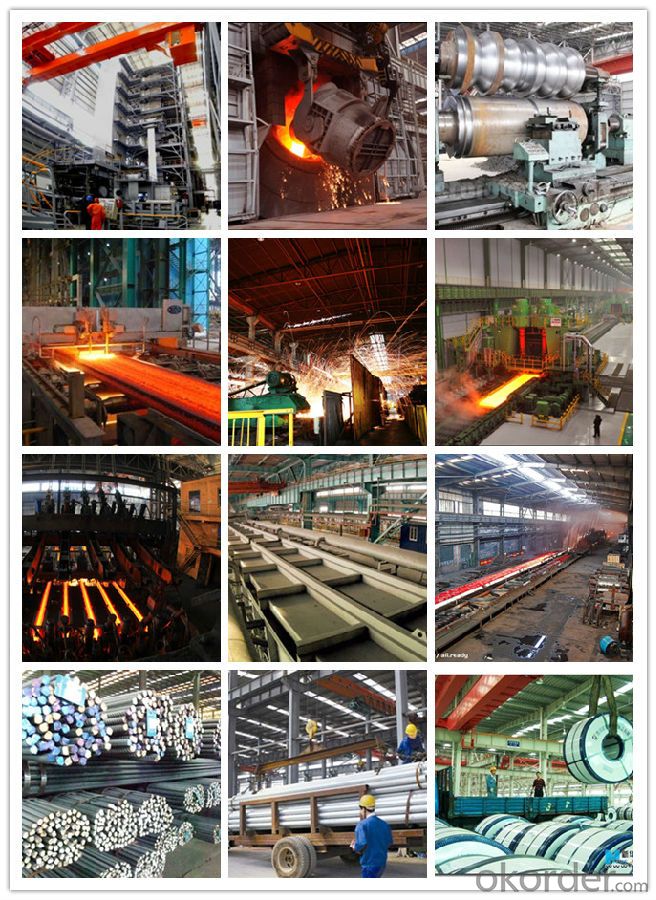
Shipping
1. FedEx/DHL/UPS/TNT for samples, Door-to-Door;
2. By Air or by Sea for batch goods, for FCL; Airport/ Port receiving;
3. Customers specifying freight forwarders or negotiable shipping methods!
Delivery Time: 3-7 days for samples; 5-25 days for batch goods.
Payment Terms
1.Payment: T/T, L/C, Western Union, MoneyGram,PayPal; 30% deposits; 70% balance before delivery.
2.MOQ: 1pcs
3.Warranty : 3 years
4.Package Informations: 1) EXPORT, In 20 feet (GW 25 ton) or 40 feet Container (GW 25 ton)
2)as customer's requirement
Why choose us?
(1) The leading exporter in China special steel industry.
(2) Large stocks for various sizes, fast delivery date.
(3) Good business relationship with China famous factories.
(4) More than 7 years steel exporting experience.
(5) Good after-sales service guarantee.
- Q: What are the challenges in manufacturing special steel?
- Some of the challenges in manufacturing special steel include the high cost of raw materials, the complex and precise production processes, ensuring consistent quality and performance, meeting specific customer requirements, and staying up-to-date with rapidly advancing technologies and industry standards. Additionally, the demand for customization and shorter lead times can also present challenges in terms of production planning and logistics.
- Q: How does special steel contribute to the performance of cutting tools?
- Special steel plays a crucial role in enhancing the performance of cutting tools by providing a range of beneficial properties. Firstly, special steel used in cutting tool manufacturing offers exceptional hardness, which allows the tool to withstand high levels of stress and wear. This hardness ensures that the cutting edge remains sharp for a longer period, resulting in improved cutting efficiency and precision. Moreover, special steel is known for its excellent toughness and resistance to chipping and breaking. This property is crucial in cutting tools as it allows them to withstand the high forces and vibrations generated during the cutting process. The toughness of special steel ensures that the tool can endure these extreme conditions without compromising its performance or structural integrity. Additionally, special steel offers excellent heat resistance and temperature stability. During cutting operations, the tool can generate significant amounts of heat due to friction. Special steel's ability to resist thermal deformation and maintain its hardness at high temperatures prevents the cutting edge from becoming dull or losing its effectiveness. Furthermore, special steel can be tailored to specific applications through alloying and heat treatment processes. This flexibility allows manufacturers to optimize the steel's properties based on the cutting tool's intended use, such as cutting different materials or operating in challenging environments. By customizing the special steel, cutting tools can be designed to deliver optimum performance, durability, and longevity. In conclusion, special steel contributes significantly to the performance of cutting tools by providing exceptional hardness, toughness, heat resistance, and customization options. These properties ensure that cutting tools remain sharp, durable, and efficient, enabling them to achieve precise cuts and withstand demanding cutting operations.
- Q: What are the requirements for special steel used in construction equipment manufacturing?
- The requirements for special steel used in construction equipment manufacturing typically include high strength, durability, and resistance to wear and corrosion. Additionally, the steel should have good weldability and machinability to ensure ease of fabrication. It should also possess excellent impact resistance to withstand heavy loads and harsh working conditions.
- Q: What are the applications of special steel in the nuclear industry?
- Special steel is extensively used in the nuclear industry due to its unique properties. It is used to manufacture various components such as reactor vessels, steam generators, and fuel cladding, which require high strength, corrosion resistance, and heat resistance. Special steel ensures the safety and efficiency of nuclear power plants by withstanding extreme temperatures, pressures, and corrosive environments. Its applications in the nuclear industry are crucial for maintaining the integrity and reliability of nuclear facilities.
- Q: How is nitriding steel used in the manufacturing of engine components?
- Nitriding steel is used in the manufacturing of engine components to improve their hardness, wear resistance, and overall performance. The nitriding process involves diffusing nitrogen into the surface of the steel, forming a hard layer of nitrides. This increases the component's resistance to abrasion, corrosion, and fatigue, making it more durable and long-lasting. Additionally, nitrided steel has high heat resistance, which is crucial for engine components exposed to high temperatures and friction. Overall, the use of nitriding steel in engine manufacturing enhances the reliability and efficiency of the engine, leading to improved performance and longevity.
- Q: What are the advantages of using special steel in aerospace applications?
- There are several advantages of using special steel in aerospace applications. Firstly, special steel offers exceptional strength and durability, making it suitable for withstanding the extreme conditions and stresses experienced during flight. This ensures the structural integrity and safety of the aircraft. Secondly, special steel has excellent corrosion resistance properties, which is crucial for protecting the aircraft components from the harsh environment and moisture encountered in the aerospace industry. Additionally, special steel can be tailored to meet specific requirements such as high-temperature resistance or low weight, allowing for efficient design and optimization of aerospace components. Lastly, special steel is readily available and cost-effective, making it a practical choice for aerospace manufacturers. Overall, the use of special steel in aerospace applications enhances the performance, reliability, and longevity of aircraft components.
- Q: What are the applications of corrosion-resistant steel?
- Corrosion-resistant steel has a wide range of applications in various industries. It is commonly used in the construction of buildings, bridges, and infrastructure in coastal areas or places with high humidity, as it can withstand exposure to corrosive elements like saltwater and moisture. It is also utilized in the automotive and aerospace industries, where it provides durability and longevity to components exposed to harsh environments. Additionally, corrosion-resistant steel is extensively used in manufacturing equipment and storage tanks for chemicals, pharmaceuticals, and food processing, as it ensures the integrity and safety of these materials.
- Q: What are the specific requirements for special steel used in the marine industry?
- The specific requirements for special steel used in the marine industry include high corrosion resistance, ability to withstand extreme temperatures and pressure, superior strength and toughness, good weldability, and resistance to fatigue and cracking. Additionally, the steel should be able to withstand exposure to seawater and other harsh environmental conditions without deteriorating or causing any negative impact on the marine ecosystem.
- Q: What are the limitations of using special steel in marine environments?
- Special steel can be susceptible to corrosion and pitting when exposed to saltwater in marine environments. Additionally, the high cost and difficulty in sourcing and maintaining special steel can also be limiting factors.
- Q: How does special steel contribute to reducing production costs?
- Special steel contributes to reducing production costs in several ways. Firstly, special steel has higher strength and durability compared to regular steel, which means that it can be used to make lighter and more efficient components. This leads to reduced material usage and lower costs. Additionally, special steel has superior corrosion resistance, which prolongs the lifespan of machinery and equipment, reducing the need for frequent repairs or replacements. Moreover, special steel can be customized to specific requirements, allowing for more precise manufacturing processes, minimizing waste, and optimizing production efficiency. Overall, special steel helps in minimizing material costs, maintenance expenses, and maximizing productivity, leading to significant reductions in production costs.
Send your message to us
Special Steel Forged Carbon Steel SS400 Q235
- Loading Port:
- China main port
- Payment Terms:
- TT OR LC
- Min Order Qty:
- 30 m.t.
- Supply Capability:
- 10000 m.t./month
OKorder Service Pledge
OKorder Financial Service
Similar products
Hot products
Hot Searches
Related keywords
